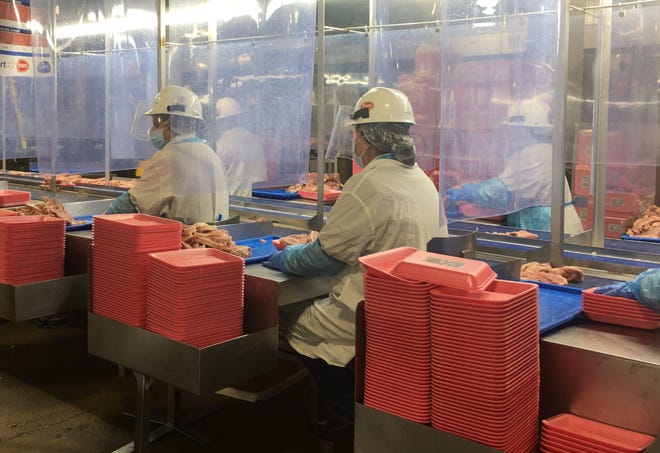Packing plant workers need better protections

Inside packing plants throughout our nation, workers continue to lack enough personal protective equipment, or PPE; don’t have enough space for social distancing; and continue to worry about what is going to happen to them. They worry because nobody is communicating with them about the exposure of COVID-19 within the plant.
Since the pandemic began, throughout the nation, there have been at least 45,000 reported positive cases tied to meat and poultry processing facilities from at least 479 outbreaks in 38 states, and at least 239 reported worker deaths in at least 61 plants in 27 states. These individuals were family members, neighbors, community members, and essential workers. There has been a time for action to protect those who feed us, our nation, and the world. We get another chance, but for those individuals who have died, our second chance comes too late.
I am the daughter of retired packing plant workers. I know my parents are not in danger on a daily basis because they don’t work at the plant anymore. That is not the case for a lot of packing plant workers and their families.
One individual who works at a packing plant in Nebraska, shared the plant is not staggering shifts and there is no social distancing between shift change and breaks. Since the COVID-19 pandemic has started, the corporation has failed to take precautions to protect their employees’ rights and the safety of working conditions before and after things got worse.
We will continue to ask the corporations, local officials, state lawmakers, and federal lawmakers to take care of our essential workers at packing plants. The numbers continue to increase nationwide and packing plant workers have been front and center in this epidemic.
Established in 1973, the Center for Rural Affairs is a private, non-profit organization working to strengthen small businesses, family farms and ranches, and rural communities through action oriented programs addressing social, economic, and environmental issues.